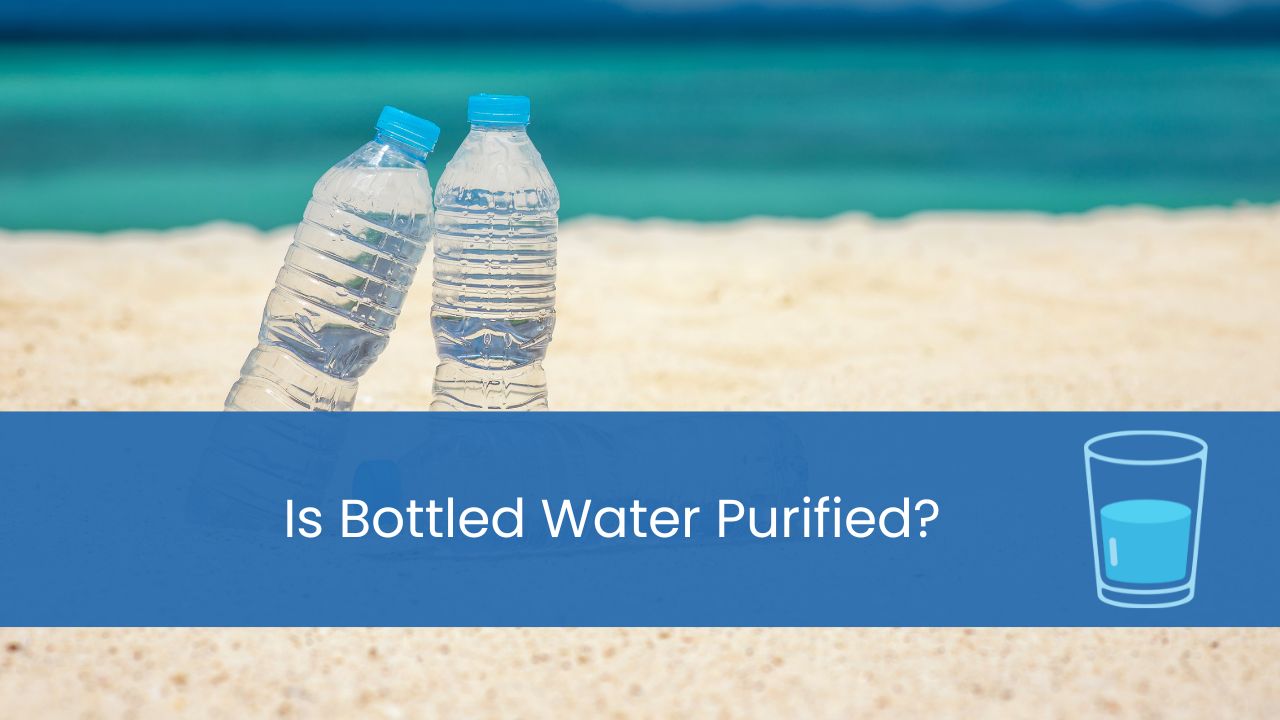Did you know that Americans consume over 50 billion bottles of water each year? That’s an astonishing number, and it’s no surprise given the convenience and perceived safety of bottled water.
But have you ever wondered if all bottled water is purified? After all, not all brands advertise their purification process on their labels.
In this article, we’ll explore how bottled water is purified, how long it lasts, whether it’s safe to drink, and its potential health benefits.
So grab a bottle of your favorite brand and let’s dive in!
Key Takeaways
- Not all bottled water is purified and different brands use different methods to purify their water.
- Kroger and Dasani use reverse osmosis to remove impurities, while Nestle Pure Life and Pur Aqua use a combination of methods including reverse osmosis and carbon filtration.
- Purified bottled water has an expiration date and plastic containers can affect the taste of water over time. Bacterial growth or contamination is a risk.
- Purified water can provide numerous benefits for overall health and well-being, including improved digestion, better skin health, and weight loss, and choosing purified water over sugary drinks can help avoid excess sugar intake.
Table of Contents
- Key Takeaways
- Is All Bottled Water Purified?
- How Is Bottled Water Purified?
- How Long Does Purified Bottled Water Last?
- Is Purified Water Safe To Drink?
- Is Purified Water Good For You?
- Conclusion
Is All Bottled Water Purified?
Do you know if all bottled water is purified? The answer is no. Not all bottled water goes through the same purification process. Some brands, like Kroger and Dasani, use reverse osmosis to remove impurities from their water. This process involves pushing the water through a membrane that filters out minerals and other contaminants.
Other brands, like Nestle Pure Life and Pur Aqua, use a combination of methods including reverse osmosis and carbon filtration to purify their water. However, it’s important to note that not all types of bottled water are purified. For example, distilled water is made by boiling water and then collecting the steam as it condenses back into liquid form. While this removes impurities such as minerals and bacteria, it doesn’t necessarily purify the water in the same way that reverse osmosis or carbon filtration does.
How Is Bottled Water Purified?
Through a multi-step process, impurities are removed from the water to make it safe for consumption. Different brands of bottled water use different methods to purify their water.
For example, Kroger purified water goes through a reverse osmosis process that removes impurities by forcing the water through a semipermeable membrane. This method is also used by other brands such as Dasani Water and Nestle Pure Life.
Other brands, like Pur Aqua, use a combination of filtration techniques which include activated carbon filters and ultraviolet light sterilization. Activated carbon filters remove chlorine and organic compounds while ultraviolet light kills bacteria and viruses present in the water.
The end result is pure drinking water that meets or exceeds federal standards for drinking water quality. Knowing how bottled water is purified can help you choose a brand that suits your needs and preferences when it comes to taste and purity levels.
How Long Does Purified Bottled Water Last?
You may be surprised to learn that purified bottled water has an expiration date. Yes, even the popular brands like Kroger Purified, Dasani Water, Nestle Pure Life, and Pur Aqua have a shelf life.
This is due to the fact that plastic containers can affect the taste of water over time and there is always a risk of bacterial growth or contamination.
So how long does purified bottled water last? Generally speaking, unopened bottles can be stored for up to two years without any major changes in quality. However, once you open the bottle and expose it to air and bacteria from your mouth or hands, it’s recommended that you consume it within 1-2 days.
To extend the life of your purified bottled water, consider transferring it into a clean glass or steel water jug with an airtight lid to keep bacteria out.
Is Purified Water Safe To Drink?
If you’re concerned about the safety of your drinking water, it’s important to remember that not all sources are created equal. While some bottled water brands like Kroger Purified and Nestle Pure Life use advanced filtration methods to remove impurities, others such as Dasani simply rely on municipal tap water.
So, is purified water safe to drink? The answer largely depends on the brand. Kroger Purified and Nestle Pure Life both use reverse osmosis technology, which filters out contaminants like lead, chlorine, and bacteria. In addition to being purified, these brands also undergo rigorous testing for quality assurance.
On the other hand, Dasani has faced criticism for its lack of transparency regarding where its water comes from and how it’s treated. While the company claims their purification process includes reverse osmosis and a final ultraviolet disinfection step, there have been reports of customers finding mold in their bottles.
Ultimately, it’s up to consumers to do their research and choose a reliable source of purified water.
Is Purified Water Good For You?
Looking for a healthier alternative to sugary drinks? Opting for purified water can provide numerous benefits for your overall health and well-being.
Purified water, often found in bottled water brands like Dasani and Nestle Pure Life, goes through a rigorous filtration process that removes impurities and contaminants. This means you’re getting a clean, refreshing drink that’s free of harmful substances like chlorine, lead, and bacteria.
Drinking purified water regularly has been linked to improved digestion, better skin health, and even weight loss. By choosing this type of beverage over options like soda or juice, you’ll also be avoiding excess sugar intake that can lead to health problems down the line.
So next time you’re looking to quench your thirst or hydrate after a workout, reach for bottled water that’s been purified – it’s good for you in more ways than one!
Conclusion
So now you know that not all bottled water is purified, but how about the ones that are? Purified bottled water goes through a rigorous process to remove impurities and contaminants, ensuring that what you’re drinking is safe and clean.
But just because it’s purified doesn’t mean it will last forever. It’s important to check the expiration date and store it properly to ensure its quality.
But the question remains: Is purified water good for you? The answer is yes! Drinking purified water can help improve digestion, boost energy levels, and even assist with weight loss.
So next time you reach for a bottle of water, make sure it’s purified – your body will thank you!

Audrey McGill
About The AuthorMeet Audrey, the water-enthusiast behind WeLikeWater.com. Her love for all things H2O inspired her to create this laid-back space where folks can dive into the world of water. From the fizzy to the calm, Audrey's been on a journey through every ripple and wave, and she's eager to share her discoveries.

